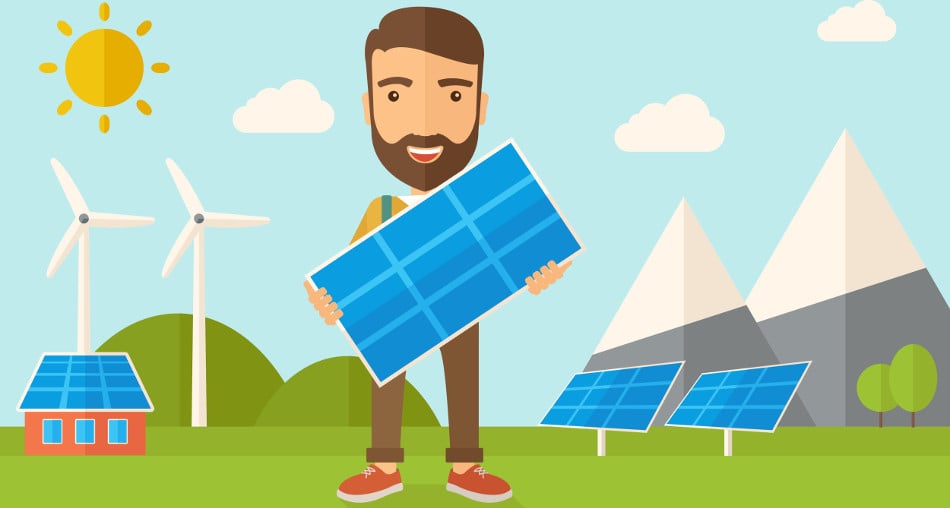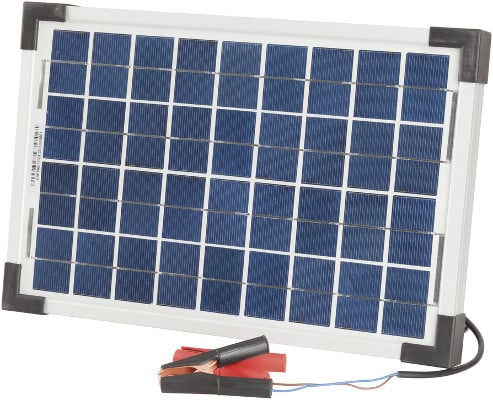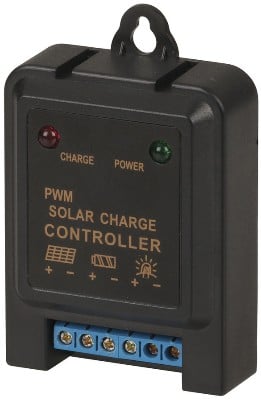A Beginner’s Quick Guide to Home Solar Panels
February 1, 2022

With home solar panels, your roof can be more than just a roof!
The energy produced by the sun is one of nature’s most powerful yet free resources. Thanks to technological advancement, solar panels take advantage of that resource.
This electronic device uses semiconductor technology to convert energy from sunlight into electricity. Also known as solar modules, solar panels can power your household.
Further, there are three key benefits of home solar panels. You can use these influencing factors to your advantage.
But will a solar-powered home actually pay off in your case? And if you are planning to invest in one, you want to make sure you are purchasing the suitable unit for your home needs.
There are lots of things to consider, but reading our guide can be a great starting point.
The Basics of Solar Panels
Solar energy begins with the sun, and sunlight plays a big role in solar production. This is where solar panels take advantage of it.
Solar panels are a component of a photovoltaic system. They are constructed from a series of photovoltaic cells arranged into a panel, hence the name.
The light from the sun is composed of energy particles called photons. As the photos hit a solar cell, they knock electrons loose from their atoms.
When electrons zip through the circuit, the movement produces an electric current. And these photons are then converted by the solar panels into electricity.
What are solar panels made of?
The main component of a solar panel is the solar cell. Solar cells are made of semiconductors, such as silicon. They absorb the sunlight and convert it into electricity.
They are connected electrically and packed together in a frame called a solar panel. When you connect multiple solar panels together, they form a solar array. The addition of cabling, brackets, inverter, and so on completes the solar panel system.
Moreover, solar cells are bundled together to form larger units called solar modules, which are paired with solar panels. These modules feature a black or blue-tinted slab that you normally see on a house roof.
Most solar panels are made from crystalline silicon type solar cells. These panels are composed of layers of silicon, including phosphorus and boron.
These cells are in a grid pattern. The number of cells depends on the panel size. There is a variety of sizing available.
Once the cells are set out, the panel itself is sealed to protect them within. For extra protection, the cells are also covered with non-reflective glass.
This glass ensures the sunlight can still reach the cells without any damage from the sun. Once sealed, the panel is placed into a rigid metallic frame.
The frame is designed to prevent deformation. Additionally, the back of the panel is also sealed to avoid damage.
It also includes a drainage hole to prevent water from building up. Otherwise, this could reduce the efficiency of the panel.
Contrary to popular belief, solar panels do well in the heat. Although they work directly with the sun, does the weather affect their efficiency? Find out the answer here.
What Are Home Solar Panels?
Solar panels for homes usually go on the roof. Solar arrays are installed on your roof to generate electricity from the sun.
Home solar panels work by converting light energy to usable electricity. This converted energy is what you can use to power your home, such as appliances. In return, you can save money over time on electricity costs.
The key benefits
- Clean electricity all year round. Solar panels generate clean, emission-free electricity to power your home throughout the year. They can last for more than 25 years, making them an excellent long-term investment.
- Increase your home value. Research indicates that the more solar panels there are on the roof, the higher the home’s value. The estimated increase is almost $6000 dollars per kilowatt of solar energy.
Reduce your carbon footprint. Solar energy is a natural, renewable source. It produces little or no emissions when it is converted to electricity. Plus, it can be replenished, unlike finite fossil fuels. With solar panels, you can lower your carbon footprint.
Furthermore, solar energy can be used for diverse purposes. One, it can produce electricity in areas without access to the energy grid. This also includes power satellites in space or distilling water in regions with limited water supply.
When it comes to maintenance, solar panels do not require much. As long as they are relatively clean, they are good to go.
Where to Find Solar Panels for Your Home?
There are a wide variety of solar panels available on the market for users with prices for every budget. If you are looking for high-quality solar panels, check out our offers below!
1. Solar Cells
Here, we offer a range of solar cells modules (0.5, 1.5 & 2.0 Volt) ideal for experimenting and powering models. You can connect these cells in series for increased voltage or in parallel for increased current.
These solar cells are ideal for experimenting or powering models. Connect them in a series for increased voltage or in parallel for increased current.
- 0.5V 0.90Amp Solar Cell 86x55mm (Product code: KI2040)
- 1.5V 0.90Amp Solar Cell 86mm x133 mm (Product code: KI2043)
- 2.0 V 0.90Amp Solar Cell 86mmx172mm (Product code: KI2048)
- 2.0V 0.76Amp Solar Cell 86x147mm (Product code: KI2047)
- 2V 0.34Amp Solar Cell 105mm x 72mm (Product code: KI2046A)
2. Solar Panels: Monocrystalline
A monocrystalline solar panel is composed of monocrystalline solar cells. It has the highest efficiency (17% to 22%) and power capacity out of all types of solar panels.
Monocrystalline solar panels are also designed with a single, flat black colour. They are used in rooftop solar installations today.
Here, we offer high quality Monocrystalline solar panels. Designed with robust construction and performance to suit harsh Australian conditions.
200W Folding Solar Panel with 12V Regulator
No longer available
Product code: JZM9137
If your home requires high power, this 200W solar panel is an excellent choice. Made from two A-grade 100W solar cells, this unit also includes a PWM solar regulator.
80W Monocrystalline Solar Panel 12Volt
No longer available
Product code: KI2097
A high-performance solar panel unit that is smaller, thinner, and higher in efficiency. Made to withstand harsh conditions with a durable aluminium frame and 3.2mm tempered glass.
The unit also features overheat protection and requires minimal ongoing maintenance. Its portability also makes it an ideal power source for caravan, 4×4 or camping trips.

10W Monocrystalline Solar Panel with Alligator Clips
Product code: KI2093
A high-quality 10W solar panel with high efficiency compared to regular monocrystalline models. An easy way to keep your 12V batteries topped up and ready to go!
Dust and weather resistant panel with a robust frame. The unit also comes with 3m long leads terminated with battery clips.
Fitted with a blocking diode for direct connection to the battery.
Note: Our monocrystalline panel sizes range from 5W to 175W. Click here for more.
3. Solar Panels and Chargers
Check out our range of solar panel chargers and regulators.
12V 1.5W Solar Trickle Charger
Product code: JMB3504
No longer available
Ideal for keeping your 12v household battery, including boat, car, tractor, topped up. Clip it onto your battery using the clips provided or plug it into the cigarette lighter socket.
The built-in blocking diode prevents your battery from draining overnight. It even works on cloudy days! This solar trickle charger is a handy product to have on hand.

Miniature 12V 3A PWM Solar Charge Controller
Product code: JMP3762
An ultra-compact PWM regulator ideal for small solar power using panels with 40 Watts or less. It features light and timer control and three-stage PWM charge control:
- Bulk
- Equalise
- Float charging
MPPT Solar Charge Controller 12/24V 15A
Product code: JMP3739
No longer available
Best to use with 12 or 24V battery banks and solar arrays up to 24VDC. It features heavy-duty terminals for heavy gauge cabling. Plus, adjustable bulk and float charge voltages to fine-tune for your installation.
There is an LCD to present feedback on charge status, voltages and current. Built into a durable heatsink case for permanent installation.
The Bottom Line
Solar panels let you generate your own clean energy. They help you create a natural source of energy that can sustainably power your home.
In addition to the environmental benefits, solar panels are becoming increasingly affordable. All thanks to the continuous improvements to technology!
Keeping in mind the cost and savings, you can break even on your solar panel investment. So, are solar panels worth it? The answer is yes, they are!
Tip: To know if your house is a good candidate for solar, use a solar panel suitability checker. For one, Google’s Project Sunroof. The more direct sunlight your home receives, the more power the panels will produce.
This article was originally published in November 2020 and has been updated.
© Electrotech Brands Pty Ltd 2022


Write a Comment
You must be logged in to post a comment.